During the last years there has been performed enormous work to put in order one of the most beautiful towns in Latvia and a pleasant suprise awaits those who have not visited this town for a while.
To those who do knot know Kuldiga - this unusual and lovely town has got a lot more sights than shown in this gallery. Unique urban environment of Kuldiga is shaped by narrow streets lined with 17th - 19th century wooden buildings and occasional stone buildings - mostly in Neogothic style - in between. There is no similar town in whole world.
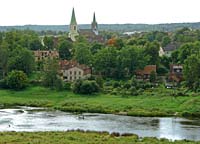
Centre of the town is hidden behind crowns of trees.
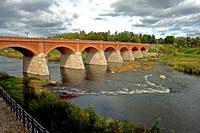
The largest arched brick bridge in Europe goes across Venta, built in 1874, renewed in autumn 2008.
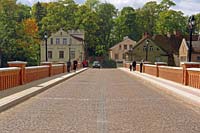
Driving across the bridge towards the centre.
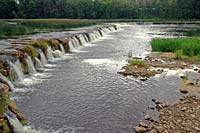
Ventas rumba - widest waterfall in Europe - width 270 - 275 metres.
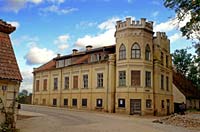
At the end of the bridge - Neogothic style building from late 19th century. Construction of streets is continuing.
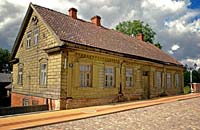
Across the street, almost on the bridge - ornate wooden building (Baznicas 24).
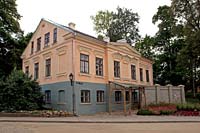
Building on Kalna Street 27.
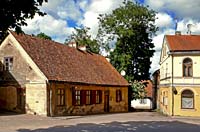
Baznicas Street.
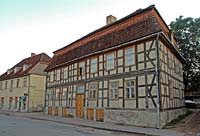
Former pharmacy for court of duke Jacob in Baznicas 10, 18th century.
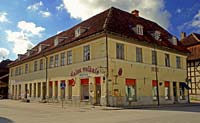
Building on the corner of Liepaja Street - built before 1760.
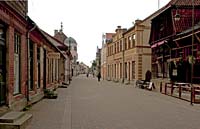
Streetscape of Liepaja Street.
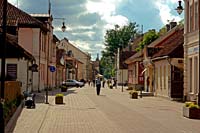
Streetscape of Liepaja Street.
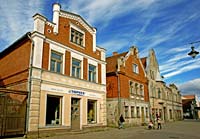
Building on Liepaja Street 13 - built around 1910.
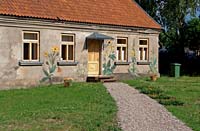
Teahouse on Liepaja Street.
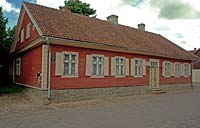
Building on Liepaja Street 17, end of 18th century.
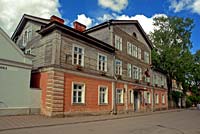
Building on Liepaja Street 33.
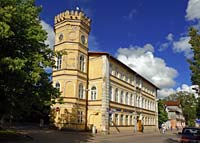
Building on Liepaja Street 37 - post office, built in Neogothic style around 1879.
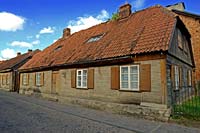
Pastorate in Raina Street 6 - build in Classicism forms before 1797.
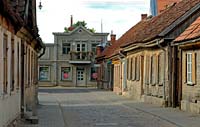
Raina Street.
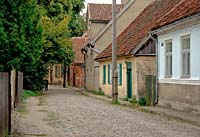
Rumba Street.
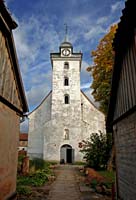
Catholic church - built in Mannerism style in 1640.
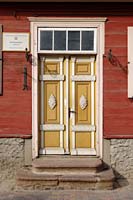
Characteristic door decoration, Liepaja Street 17.
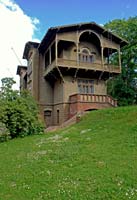
Kuldiga town museum building (1900) - brought here from Paris exposition.
Pictures taken on 14th, 28th June and 20th September 2008.
























